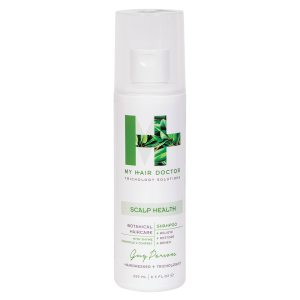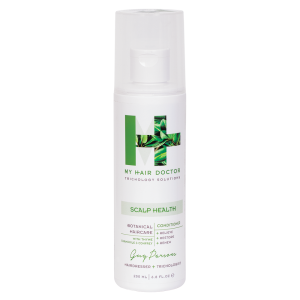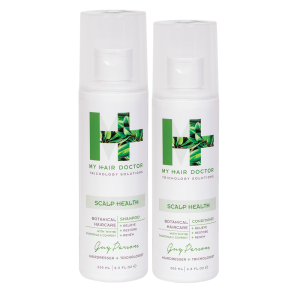Scalp Health, Hair Science
RINGWORM
Introduction
Ringworm is a common fungal infection that can cause a red or silvery ring-like rash on the skin. Ringworm commonly affects arms and legs, but it can appear almost anywhere on the body. Despite its name, ringworm doesn’t have anything to do with worms. Other similar fungal infections can affect the scalp, feet, groin and nails.
These fungal infections, medically known as “tinea”, are not serious and are usually easily treated. However, they are contagious and easily spread.
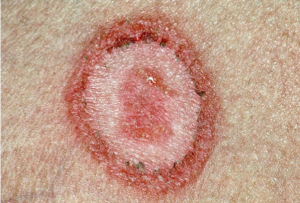 Tinea fungal infections
Tinea fungal infections
There are different types of tinea fungal infection, based on the affected area of the body:
- ringworm (tinea corporis) – affecting the body
- fungal nail infection (onychomycosis) – affecting the nails
- athlete’s foot (tinea pedis) – affecting the feet
- tinea cruris – affecting the groin
- tinea capitis – affecting the scalp
Ringworm usually looks like a round, red or silvery patch of skin that may be scaly, inflamed and itchy, but other fungal infections may present themselves slightly differently..
When to see a doctor
See your GP if you or your child has a fungal scalp infection, as it’s treated with antifungal tablets, which are only available on prescription. Symptoms of a fungal scalp infection include small patches of scaly scalp skin (which may be sore), patchy hair loss and itchiness.
Other types of fungal infections (including ringworm) are generally treated with antifungal cream from the pharmacy, and you don’t need to see a doctor unless it persists. However, pharmacists often prefer children to see a GP to confirm a diagnosis.
What’s the cause?
Fungal spores are passed between people through direct skin contact and by sharing objects such as towels, hairbrushes and bedding. Athlete’s foot is commonly spread in gym and swimming pool changing rooms. Pets, such as dogs and cats, can have ringworm, and you can catch it by stroking them.
Who is affected?
It’s estimated that 10-20% of people will have ringworm in their lifetime. Although children are more likely to get this, people of all ages can be affected. Groin infections are more common in young men. Fungal scalp infections (tinea capitis) are most common in children who have not reached puberty, particularly African-Caribbean children and those who live in urban areas.
Treatment
Most ringworm infections are mild and can be treated using a pharmacy antifungal cream. Scalp infections can be treated with antifungal tablets, sometimes combined with antifungal shampoo.
If the skin is irritated or broken, it can lead to other bacterial infections, which may need treatment with antibiotics. Read more about how to treat fungal infections.
Stopping it spreading
It’s important to prevent the infection spreading. You should avoid sharing towels, bedding or clothes with someone with a fungal infection. If you think your pet has ringworm, take it to the vet. If your pet is treated quickly, you’ll be less likely to catch it. If your child has a fungal infection, they can go to school, but you should inform their teacher. In addition to treatment, your child should maintain a good level of personal hygiene to prevent the infection spreading.
Scalp Health Active Botanicals


THYME
Thyme Oil has an anti-bacterial effect due to its high content of phenol (antiseptic) and is used for this benefit in scalp care preparations.


CHAMOMILE
(Bisabolol) A clinically tested active; Bisabolol protects and heals the skin from the effects of daily stress. It is a naturally occurring active ingredient found in chamomile that accelerates the healing process.
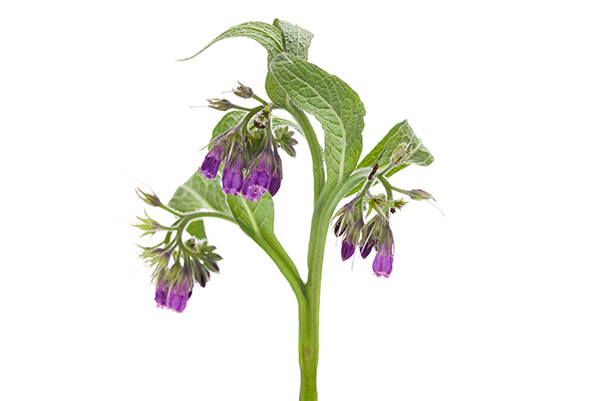

ALLANTOIN
(Comfrey) A clinically tested soothing, softening and protective active as found in the comfrey plant. It improves the skin's moisture retention providing a smoothing effect. It exfoliates dry and damaged cells increasing softness and a radiant appearance. It helps with the prevention of scalp irritation and supports the natural regeneration of the skin/ scalp.




